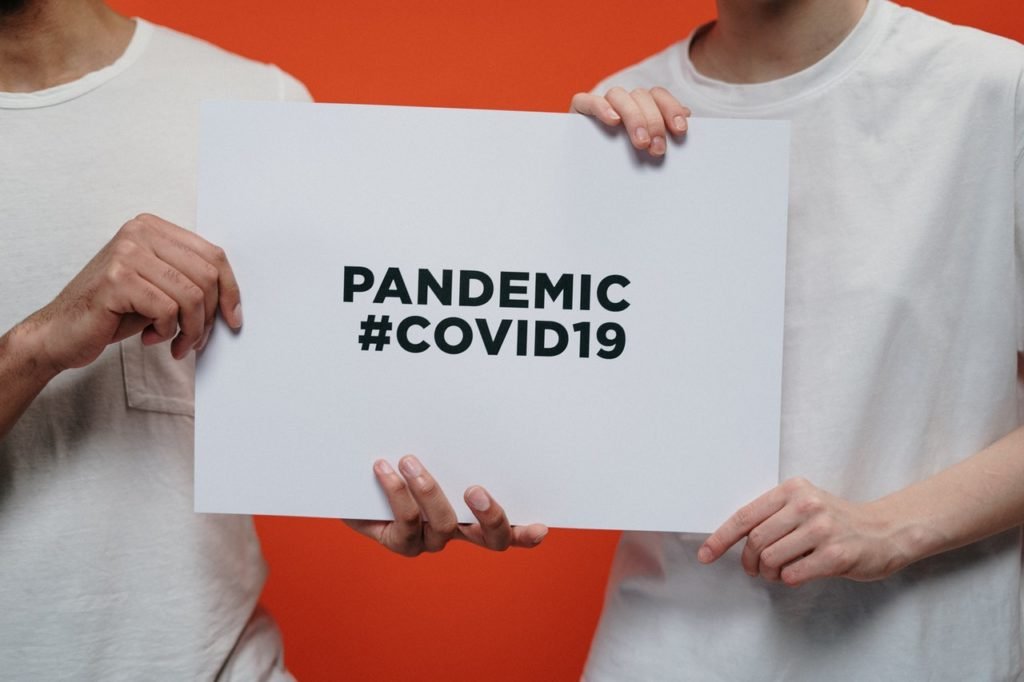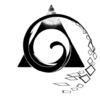In these difficult times where an ugly mix of clarity and confusion is making everyone to obsessively google COVID-2019, pandemic, washing hands, coronavirus and so on, something triggered my mind. Throughout last week, I started reflecting on the importance of guidance in stressful times… and there it was: the absence of the “archetypal father” (Jung, 1948). With this term, Jung identified al the aspects that a father figure might have: strength, protection, and authority, and the lack of it in the case of its dark side.

This article first appeared in shortened fashion on The Psychologist.
At the beginning of my training in TA, the whole idea of OK-ness shocked my understanding of the psychotherapeutic process. This term defines the inherent sense of being enough. I have been trained as a Clinical Psychologist with an orthodox psychoanalytical understanding of mental health: the idea seemed alien to me. Yet as in every love story, I started flirting with it, trying to investigate its idiosyncrasies and complexities, feeling my system slowly warming up to it, and beginning to see its value only when I decided to take it out in the world. I can’t say I wanted to marry it straight away, but I decided to move in with it, and take it from there.
It’s working, thanks for asking.
My understanding of “I’m OK, You’re OK” is more existential (English, 1975) than practical, yet its outcomes have a more than a theoretical effect on what I do or don’t. People acquire a Life Position (Harris, 1967) and usually codify and interpret the world from this existential lens, rather than passively absorb the world.
In these difficult times where everybody knows COVID-2019 and is on high alert whenever a cough is heard, I think that the worldwide societies are facing their existential position right now, and this is evident by the variety of responses that we all are able to see happening in the world.
I am going to ask to put on some glasses, and see the world using this simple tool: “Am I considering mine and people’s condition right now? Do I consider others as worthy of OK-ness as much me?”.
Epidemic and Pandemic as Losses
Being the person that I am, I can’t refrain from looking at the world with some curiosity. I recently started to consider both the concept of Loss and its role in systems.
Losses happen whenever something or someone disappears, ceases to exist or becomes infinitely distant from us. I don’t think that there is any “recovery” from loss, as usually the lost object/person is not going to come back anytime soon. It is all about reshaping our life after the loss, and the only way to do it is to feel the loss in small bites, as small as affordable by the person.
Every loss makes us rethink about our existential position towards ourselves, others, and the world. Traumatic Losses do this even more effectively, potentially shattering our hardly earned safety into disintegration, pushing towards confusion and reaction, rather than a calm (Adult) analysis of our surroundings.
The safety-seeking response
When under pressure, people use their own shortcut to safety, their (almost literally) survival decisions and strategies. It is unsurprising then, that the average reaction we are seeing is on the lines of “every man for himself!”. It is such a human reaction to have when faced with an invisible, relentless, threat like coronavirus: a flu virus different enough from other seasonal flu viruses to quickly and effectively spread. We are now faced with existential anguish and threat: an invisible attacker that can become anyone, especially who we don’t know.
Strangers.
All of us living in the UK have done some thinking about this virus, we are forced to by what is happening in Italy right now and its drastic measures.
It’s disturbing to see the fear spreading quicker than the virus, the “You’re not OK” part of the equation is evident in the fellow passenger with darting eyes who changes seat in the bus as soon as you cough, the fellow tube passenger who gets out of the train 4 stations before their destination after hearing a sneeze. Well, the lack of passengers in the trains speaks loud about fear.
The group pressure on the individual
We are born in groups, and it’s to our group where we go to find shelter when feeling unsafe. From the group we receive the promise of protection, the “We’re OK”.
Unfortunately, this becomes a problem whenever the group leaders show denial or minimisation of problems, perpetrating narratives that are not in line with the here-and-now events. As in dream-like states where things have little-to-nil consequence in the real world, some leaders respond to losses of safety with a disorganised attitude of freezing, Discounting that results in neglect, and a false sense of safety that does not match the experience of the individual.
This is the confusing birth of a deep rift that can go anywhere.
Confusion is the main experience, at all levels. In the immense and intricated system where we are as humanity, a pandemic it’s an invitation to get together and collaborate. Despite the WHO shift from epidemic to pandemic, a loud silence has been heard. The group leaders, from governments down smaller systems, have offered individual responses to a systemic problem which is a statement of the current “free-for-all” general attitude. It seems apparent that the feeble “wash your hands” indication provided might not cut it.
Individuals generally tend to respond with stress-responses to the confusion at the top, showing a great deal of “selfishness” and split from their peers, which is one way to interpret the emptiness of shelves in supermarkets, and the unthought endangerment resulting from the sudden escape from the “red zones” seen in Italy. Furthermore, once fled people feel safe, as they crave for it, detaching themselves from the problem.
A confused and confusing response to a pandemic can make the individual shift towards either the “I’m OK, You’re Not OK” or the “I’m not OK, You’re Not OK” positions. What is in common between these positions is that the others become enemies or not relevant, dehumanised, therefore not worthy of care.
The unthought processes shut down logical and empathic thinking, resulting in further spreading of the pandemic.
Responsibilities: shared and individual
Leaning on laurels is the normal responses once the cortisol-driven amygdala biochemicals have worn off. Once “safety” is achieved, or assumed to be, relaxation is the next phase.
Here is where the problem lays: the “We’re OK” narrative that neglectful, unthought responses create.
The bystander effect [Clarkson] is rather known, and one thing is clear about it: it’s not a good thing.
While some passivity from the top pushes people on the bottom into action, I still believe that this is not a gamble that any of us can afford right now. It falls on the individual to make a personal assessment regarding their responsibilities, unfortunately. It would be good to receive guidance from people who are supposed to provide some, yet at times we must let go of the idea of a better state-of-things, the current loss bargaining, and look at what is happening with Adult, here-and-now awareness.
Shifting towards “I’m OK, You’re OK”
My invitation is to all the other humans to consider people who are endangered by this once-epidemic-now-pandemic: the immunosuppressed, the older, the frail, the health anxiety sufferer, the germophobe, the irresponsible, the “don’t care” type.
“I’m OK, You’re OK” is an ethical stance, a statement towards the fellow human being and their existential condition, not just a “love for all” flowery sentence that brings nothing to the table.
As an Italian man, I feel under the “You’re Not OK” part of the corral. From “pasta-eater” to “plague-bringer” is a huge leap. The “archetypal father” is not providing guidance because of his denial, so the neglected children are taking it on to each other.
As a professional of mental health, I am asking all my peers to take this coronavirus seriously, and to invite the people you are in contact with some reflection. This is a responsibility we all share towards others, the ones we know and the ones we don’t. There is nothing worse than being silent or passive right now.
I invite organisational bodies, employers, regulators, statespersons etc. to provide some directions to all of us and take this issue seriously, as what is at stake is much more than money.
Reality is, we are all in the same boat together.
References
English, F. (1975). I’M OK—You’Re OK (Adult). Transactional Analysis Journal, 5(4), 416-419.
Harris, T. A. (1967). I’m OK, You’re OK. New York: HarperCollins Publishers Inc.
Jung, C. G. (1948). A Psychological Approach to the Dogma of the Trinity. In G. Adler, & R. F. Hull, Collected Works of C.G. Jung (Vol. 11, pp. 107-200). Princeton, NJ: Princeton University Press.
